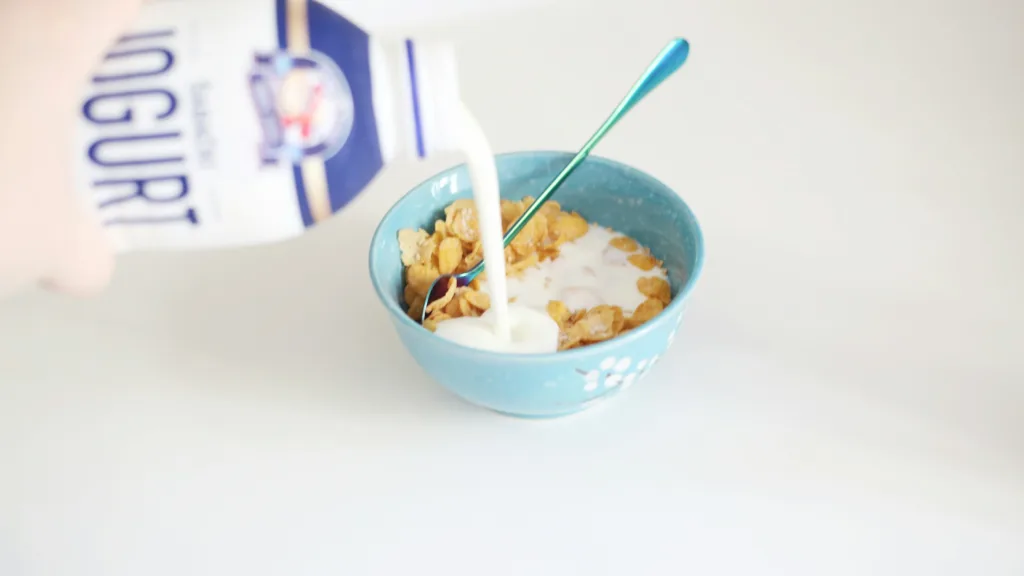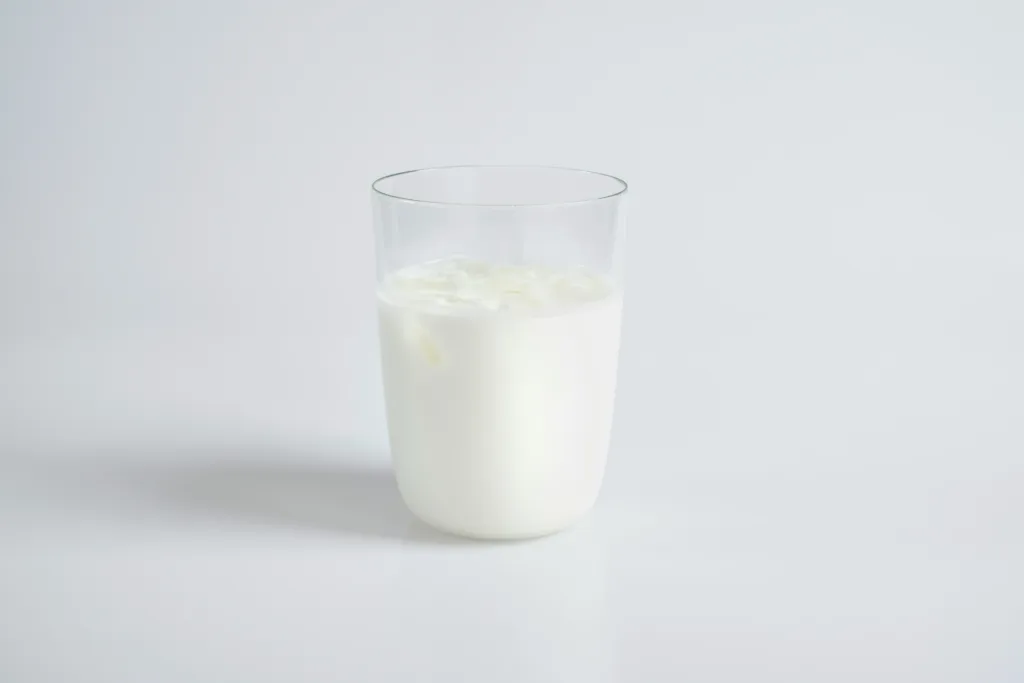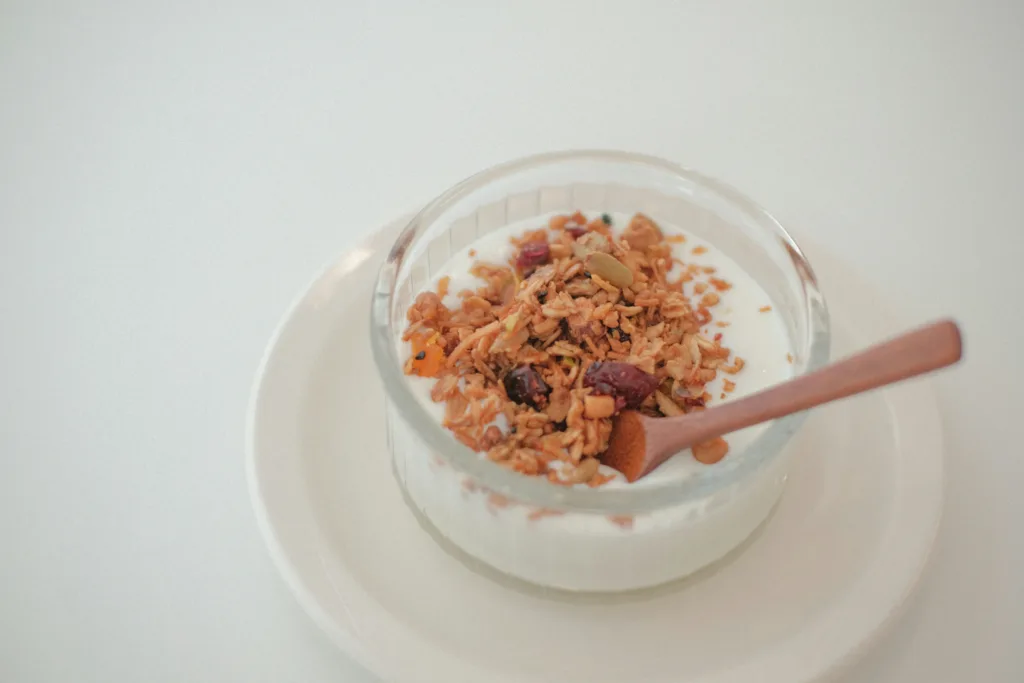Yogurt can be a powerhouse in your daily routine – packed with protein, full of gut-friendly probiotics, and often low in sugar (if you know what to look for). But with endless tubs lining grocery shelves, it’s easy to grab something that looks healthy but is loaded with added sugars or weird fillers. Whether you’re after something high-protein, dairy-free, low-fat, or just plain nourishing, we’ve got the scoop on which yogurts actually live up to the label.
At ReciMe, we know that smart eating starts with smart choices – and knowing what’s in your fridge helps. That’s why so many of us use the app to build weekly meal plans and grocery lists around staples like yogurt. It’s an easy way to get in nutrients without overthinking every snack or breakfast. Grab ReciMe now, power up your nutrition, and let’s explore the healthiest yogurts of the year.

Download for free from the App Store on iPhone and iPad

ReciMe Android App

1. Greek Yogurt
Greek yogurt’s kind of the go-to for people who want more from their yogurt – especially when it comes to protein. It’s thicker than your usual cup and a lot more filling, which makes it easy to use for breakfast, snacks, or even savory meals. Brands like Chobani and Fage offer plain, nonfat or low-fat options with live active cultures, ideal for gut support without added sugars or high fat content.
What people really love about Greek yogurt is how versatile it is. You can throw it into a smoothie, dollop it onto tacos, or turn it into a quick dip – it just fits in everywhere. The texture’s a bit tangy and dense, which not everyone loves, but it definitely holds you over better than the thinner stuff. Even the fruit-on-the-bottom kinds are getting smarter about sugar and ingredients lately, which makes sticking with it easier.
Key Highlights:
- Higher protein than regular yogurt
- Packed with probiotics (live active cultures)
- Lower-sugar flavored versions available
- Works in sweet or savory dishes
Who it’s best for:
- Anyone trying to up their protein
- People looking for a probiotic boost
- Folks who like a thick, satisfying texture
2. Traditional Yogurt
If Greek yogurt feels a bit much, traditional yogurt might be more your speed. It’s smoother, milder, and doesn’t have that thick tang – which is perfect if you’re just looking for something simple and easygoing. You still get a solid dose of probiotics and calcium, but without the texture that throws some people off. Just a heads-up: it’s got more lactose than Greek yogurt, so if you’re sensitive, maybe ease in and see how your body handles it.
Protein-wise, it’s not a heavyweight – but that’s fixable. Add-ins like chia seeds, hemp hearts, or even a scoop of protein powder can give it a boost without much effort. It stirs into things like oatmeal or smoothies really well, and it’s basically a blank slate for whatever toppings you’re into. Think of it as the “build-your-own” yogurt of the bunch.
Key Highlights:
- Soft, smooth texture
- Good source of probiotics and calcium
- Easy to mix into drinks and dishes
- Plays well with protein-boosting toppings
Who it’s best for:
- People who don’t love thick or sour yogurt
- Anyone with a sensitive stomach
- Folks who blend yogurt into other meals

3. Australian-Style Yogurt
Australian-style yogurt is kind of the best of both worlds – creamy and smooth, but not as thick or tart as Greek. It’s not strained, which gives it a richer, softer feel that’s a bit more indulgent. Brands like Noosa offer flavorful options like coffee or blueberry that taste dessert-like, but choose sparingly due to higher added sugar content. Not something you’d eat every day if you’re watching sugar, but great for a treat or snack that feels special.
Then there’s Wallaby, which tones things down a bit with less sugar and more balance – still creamy, but with a bit of tang. It blends well in smoothies and parfaits and even makes a nice base for dips. Basically, it’s a good pick if you’re not into the chalky texture of protein-packed yogurts but still want something with body.
Key Highlights:
- Creamy and soft without being watery
- Unstrained for that rich consistency
- Dessert-like flavors (think coffee or fruit blends)
- Mildly tangy to cut the richness
Who it’s best for:
- People who want a smoother, less tangy option
- Anyone craving a treat-like texture
- Folks who toss yogurt into smoothies or parfaits
4. Skyr
Skyr might look like yogurt, but fun fact – it’s actually a strained cheese. Doesn’t really matter though, because to most of us, it just feels like a super-thick, ultra-satisfying version of regular yogurt. Brands like Siggi’s and Icelandic Provisions are big names here, and what they do well is keeping the sugar low while still offering flavors that don’t taste like cardboard (hello, 2% coconut).
It’s definitely thicker than your usual cup and has a bit more tang – not harsh, but noticeable if you’re used to sweet, dessert-y yogurts. Still, if you’re trying to eat something that actually feels like a meal or snack and not just a spoonful of fluff, skyr delivers. It’s typically lower in carbs than traditional yogurt, high in protein, and plain versions avoid spiking sugar intake.
Key Highlights:
- Super thick and creamy
- Flavored versions with minimal added sugar
- Tangy, but not overpowering
Who it’s best for:
- People watching sugar or carbs
- Folks who want more protein in a snack
- Anyone who likes their yogurt thick and filling

5. Lactose-Free Greek Yogurt
Lactose-free Greek yogurt is a solid option if you love dairy but dairy doesn’t love you back. Brands like Fage’s BestSelf take regular milk and just add a special enzyme that breaks down the lactose, so your stomach doesn’t have to freak out. The best part? It tastes and feels exactly like regular Greek yogurt – no weird aftertaste or watery texture.
You still get all the good stuff: the protein, the probiotics, the thick texture that actually holds up to toppings. Whether you’re spooning it into a bowl of fruit, using it as a dip, or just eating it straight from the tub (guilty), it works the same. And you don’t have to give up real dairy to make your gut happy.
Key Highlights:
- Made from real dairy, just easier to digest
- Same flavor and thickness as standard Greek yogurt
- Packed with protein
- Works in both sweet and savory meals
Who it’s best for:
- People with lactose sensitivity
- Dairy lovers who need a gentler option
- Greek yogurt fans who want to keep the same taste
6. Soy Yogurt
Soy yogurt is a pretty dependable non-dairy choice, especially if you’re looking for one that doesn’t skimp on protein. Compared to things like almond or coconut yogurt, soy has way more to offer when it comes to nutrition – it’s usually on par with dairy when it comes to protein and calcium, which is honestly impressive.
It does have a bit of a tang from fermentation (which helps tone down that soy “beaniness” some people taste), and it’s not as thick as Greek or skyr, but it still holds up. Some brands even toss in probiotics for extra gut support. So if you’re eating plant-based but still want your yogurt to feel like food and not a glorified pudding, this is a good middle ground.
Key Highlights:
- Made from soymilk, not dairy
- Protein and calcium levels similar to regular yogurt
- Naturally tangy flavor
- Some versions include probiotics
Who it’s best for:
- Plant-based eaters who still want protein
- People skipping dairy but not nutrition
- Anyone looking for a yogurt with real substance

7. Coconut Milk Yogurt
Coconut milk yogurt is smooth, creamy, and slightly sweet but low in protein and higher in saturated fat, so consume in moderation for heart health. Most versions have way less protein than dairy-based yogurts, unless the brand adds it in (and even then, it’s not always much). It’s also higher in saturated fat because, well, it’s coconut. That’s not a dealbreaker, just something to keep in mind depending on your goals.
That said, coconut yogurt still brings a few perks. You get probiotics, a bit of fiber, and some versions include added calcium or vitamin D. The texture works great in breakfast bowls or savory recipes, but if you’re relying on yogurt to fill you up or fuel your workout, this probably isn’t the one to bet on.
Key Highlights:
- Low protein unless it’s added in
- Higher in saturated fat
- Usually includes probiotics and some vitamins
- Naturally creamy with a mild coconut flavor
Who it’s best for:
- People who don’t eat dairy at all
- Folks who aren’t counting on yogurt for protein
- Anyone looking for gut-friendly, plant-based options
8. Yogurt Shots
Yogurt shots, made from dairy or non-dairy bases, are small probiotic boosts for gut health, not meant to replace snacks or meals; check ingredients for dietary restrictions. A lot of people keep them on hand for travel days or whenever their digestion needs a reset, especially after antibiotics or being sick.
Most of them come flavored (some way sweeter than you’d expect), so if you’re watching sugar, the plain ones are usually your best bet. They’re low in protein and fiber, so they’re not going to hold you over – but they do add a little something to your routine if you’re trying to support your digestion without committing to a full yogurt bowl.
Key Highlights:
- Tiny, drinkable servings
- Packed with live cultures for gut health
- Flavored options can be high in sugar
- Low in protein and fiber
Who it’s best for:
- People focusing on digestion
- Folks who can’t do full dairy yogurts
- Anyone wanting a simple probiotic boost

9. Cashew Yogurt
Cashew yogurt has that smooth, creamy vibe – without the tang you get from regular dairy yogurt. It’s made by blending cashews and fermenting the mix, so it’s totally dairy-free and surprisingly mild. The texture’s lovely, but nutritionally, it’s kind of on the light side – not a ton of protein, calcium, or vitamins unless the brand adds them in.
What you do get is a good hit of healthy fats (thank you, cashews), and most versions stay low in carbs and sugar unless they’re sweetened. It’s great as a base or topping – think smoothie bowls or something to balance out a spicy dish – but probably not the best pick if you’re looking for a protein-rich snack.
Key Highlights:
- Creamy texture with a mellow flavor
- Low in protein and most major nutrients
- Includes probiotics thanks to fermentation
- Has heart-healthy unsaturated fats
Who it’s best for:
- Folks avoiding dairy but still wanting something creamy
- Anyone looking for healthy fats over protein
- Low-sugar eaters who like a neutral flavor
10. High Protein Yogurt
High protein yogurt is exactly what it sounds like – regular yogurt with a protein upgrade. Some brands boost it with extra milk protein, and it ends up being thick, creamy, and surprisingly filling. It’s great if you’re trying to stay full longer or want something post-workout without mixing up a whole shake.
That said, not all of them are created equal. Some versions come packed with added sugars or artificial sweeteners – especially the dessert-y ones. If you’re keeping things simple, go for the plain ones and add your own fruit or toppings. It’s still rich, still satisfying, and you get to skip the extra stuff.
Key Highlights:
- Extra protein keeps you full longer
- Great for recovery or snack time
- Some versions can have lots of added sugar
- Plain types are best for avoiding sweeteners
Who it’s best for:
- People focused on protein intake
- Post-gym snackers
- Anyone who needs a filling option between meals

11. Natural Yogurt
Natural yogurt is the no-nonsense option. It’s just… yogurt. No added sugar, no flavoring, and no sneaky extras. You get protein, calcium, and live cultures in a super basic form. It’s not trying to be dessert – and honestly, that’s what makes it so versatile.
It tastes pretty mild (some would say plain), but that’s part of the appeal. You can dress it up with fruit, honey, herbs, or just eat it as-is. It works with sweet or savory meals and blends easily into sauces, marinades, or even pancakes. If you want to be in control of what’s in your bowl, this one’s for you.
Key Highlights:
- Simple ingredients, no added sugar
- Naturally high in protein and calcium
- Includes probiotics for gut health
- Flexible for both sweet and savory use
Who it’s best for:
- People who like to keep things basic
- Anyone avoiding sugar
- Home cooks using yogurt in recipes
Conclusion
There’s no one-size-fits-all yogurt – and honestly, that’s a good thing. What works for you totally depends on what you’re looking for. Maybe you’re all about the protein. Or maybe you just want something dairy-free that doesn’t taste like a science experiment. Some folks are here for gut health, others just need something creamy to throw on granola.
Luckily, the yogurt aisle is full of options. You don’t have to stick with the same one every week. Mix it up. Try a high-protein cup after workouts, keep some natural yogurt on hand for cooking, or add a plant-based one to the rotation if you’re going dairy-free. Yogurt’s not just a snack – it’s whatever you make it. And when you find one that fits your routine, it just makes everything a little easier.
